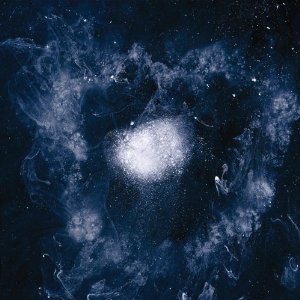Swans will always be a draw for life’s spiritual derelicts, a certain constituency in peaceful agreement that the world is cruel, human nature is animal, the west is still wild, and pain is truth. After all these years, still Michael Gira talks about his music in terms of physical suffering, of purification in hydrochloric rainstorms, of strangling his songs of “blood and light”. On ‘No Worlds/No Thoughts’, when his smashing denouement finally lands and Gira’s eyes roll back in his head, you could tan off the unholy mush descending his inside leg as the knot in his stomach liquefies. Self destruction is his drug of choice. Like many of industrial’s past-masters, it looks like he’ll never soften; never give up, the last of the zero men. Obsession is a talent like any other.
What Swans have always excelled at is capturing chronic disenchantment as it ossifies into dangerous psychosis, the exact moment when depressions stops making you stronger and starts to kill you. Bad nerves, irrational dread, paranoia, boredom, bluebottles dying on a windowsill while your father’s doppelganger scratches a tunnel through his scalp. Just as average Tuesday afternoon hawking electrical wire in East Kilbride, except with the quiet desperation exaggerated to levels of deafening fury. For Gira, in more ways than one compromise just isn’t realistic.
Yet on My Father… there’s an audible shift in conceit. It’s not a hopeful album, nor thankfully one of triumphalist indignation. But even at its most drunkenly burdened it succeeds in being gallant, an album of stature; even noble. It’s that noxious undertone of debasement characteristic of the no-wavers that is missing, the abject resignation. Gira is not “on his knees for water” this time. Have no fear, though, he still knows what ugliness sounds like, but the signature guitar squall, the dulcimer on ‘Jim’ and the e-bow whirring on ‘Inside Madeline’ brush a layer of white ash over what is an epiphanous rather than shredding album. While, on the most part the drums establish motion not barbarian tyranny, and Gira himself is searching (if forcefully), not hectoring. It’s ordered, clear minded and present, and unlike the miasmic Soundtrack… frequently epic to an almost quasi-mythic degree.
Which brings us back to ‘No Thoughts/ No Words’ and its brilliantly employed chimes, another choice of instrument which carbonates poignancy into My Father…when many of its predecessor’s simply heaved in hangdog turmoil. The chimes begin as a call-to-arms, before evolving into ringing taunts that propel the exhumed infantry further into apoplexy, before finally forming a torrential downpour as the godless bastards impact enemy barricades. Carried on winds of screaming noise, you get a picture in your mind of a suicide charge, the skull-faced vanguard in horseback pursuit of Gira’s sanity. His hope being that one day he’ll be blissfully cleansed of thoughts, of entire worlds. He told The Quietus that the album is a quest, and that’s how it plays out. That or a redemption. Maybe if the he builds this cathedral high enough he’ll meet that rope half way.
Of course Gira’s not going to get the old gang back together without a bit of blizzarding wrath. He may be in the process of forgiving himself but we aren’t getting away that easily. Gira explained matter-of-factly to the Quietus that for this record he opened his car boot and freed his demon brother, which doesn’t bode well, not at all. Who else but Gira could paint his birth as the genesis of a parasite, like on ‘My Birth’: ‘I’ll kiss your red mouth, because I love you to death / I’ll swallow your sorrow/ ingest your tears/ I’ll steal your tomorrows / give me your flesh” Many you could name probably, but maybe not with such penetrating poetry. The entire lyrics sheet merits transcription.
The immolating campfire in ‘Reeling The Liars In’; the whirling Comanche ambush on ‘Eden Prison’; saloon threnody ‘Jim’; porch lullaby ‘You Fucking People Make Me Sick’ (featuring a three-year old Saoirse Gira) – the Wild West is an endless inspiration for the melt-in-the-mouth villainy on My Father. 1968’s Blue, an existentialist western of lingering close-ups and dialogue-scant meditation, ranges ‘the time after time’ with not a drop of pioneer spirit to be had. The tagline went "To escape his past, he had to destroy it" which could underline Gira’s no wave biopic. It’s how his epitaph should read.


